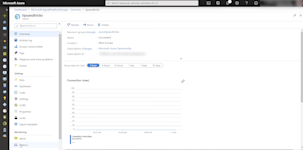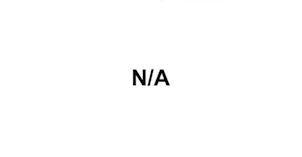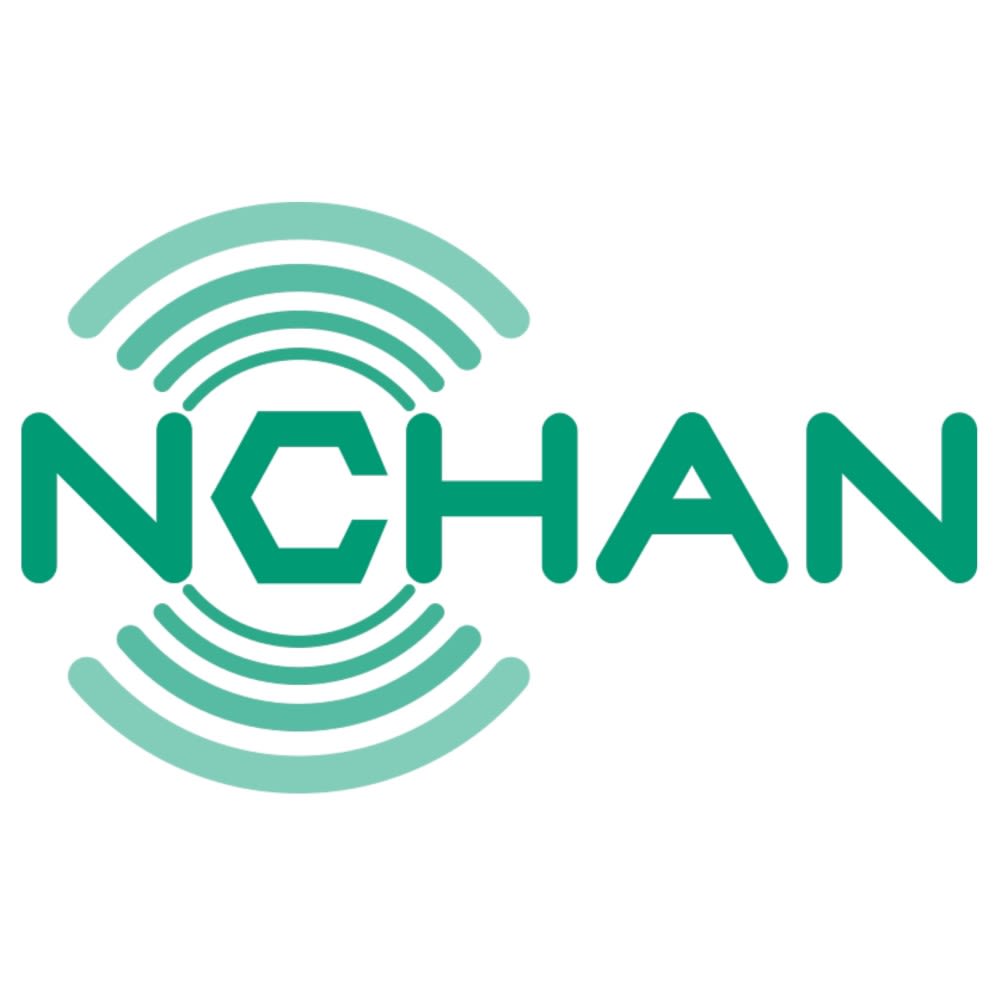Azure SignalR Service vs Nchan
This Azure SignalR Service vs Nchan comparison was created based on reviews from developers and our best attempts to perform analysis by looking at documentation and other publicly available resources.
Easily build complete, trusted realtime functionality.
Take our APIs for a spin Azure SignalR Service |  Nchan | |
|---|---|---|
| Getting started and developer experience | ||
Time to "hello world" Reviewed by 3+ independent developers Ratings were given based on the average amount of time it takes to sign up to a new account and publish the first message. | 4 / 5 5 = <30 min | 4 / 5 5 = <30 min |
Demos / Tutorials A selection of online demos and tutorials so you can test and see the code in action. Explore Ably's tutorials for our pub/sub messaging platform | ||
Documentation Reviewed by 3+ independent developers Explore Ably's documentation for our pub/sub messaging platform | 3.67 / 5 Getting started guides / 5 Information architecture and developer journey / 5 API reference documentation / 5 Readability, design and navigation / 5 Quality of code / 5 Breadth and quality of tutorials / 5 “The existing documentation is largely OK, most things are explained clearly, and the information is structured logically. Sometimes you may come across pages that were clearly written fast, so the quality of writing may not always be great. There are quickstarts in about seven languages, which is always nice to see, and there’s a diversity of handy how-to guides. Now, for the less positive things. First of all, the API reference seems to be a relatively short page on GitHub and nothing more. Secondly, there are only two tutorials embedded in the docs - and they both focus on building a chat room. More tutorials and more use cases, please! The UI is minimalistic. While sometimes this is a good thing, in this case, it just makes the SignalR documentation (and indeed the product) look and feel like an unimportant or second-hand solution.” | 4.17 / 5 Getting started guides / 5 Information architecture and developer journey / 5 API reference documentation / 5 Readability, design and navigation / 5 Quality of code / 5 Breadth and quality of tutorials / 5 W: “The documentation is extensive in details, easy to read and to navigate. There could perhaps be a tutorial putting it all together or more examples to follow.”. O: “The documentation is very detailed and rich in information, which is good but also leaves room for a more high level part as a first presentation”. P: “The getting started guide is easy to follow, once nchan and nginx have been installed. The underlying architecture and principles are well documented. It's easy to navigate between various content in the documentation, and examples are provided. |
Dashboard or dev console Reviewed by 3+ independent developers Sign up for free and explore Ably's pub/sub messaging platform | 4.33 / 5 Ease of use / 5 Stats and reports / 5 Functionality / 5  “The Azure portal is intuitive and pretty easy to use. It provides diverse functionality that allows you to view, create, and manage all the resources you need, such as SingalR instances and connection keys. Among other things, you can also control IAM roles, set up integrations and alerts, and view various logs and metrics, such as the number of connections. More contextual help such as tooltips would be nice, as it’s sometimes unclear what some settings can do." | 1 / 5 Ease of use / 5 Stats and reports / 5 Functionality / 5  N/A |
SDKs Note: Only official SDKs were taken into account. Explore Ably's 25+ SDKs for our pub/sub messaging platform | 4 SDKs Including:
| 1 SDK
|
API structure Reviewed by 3+ independent developers | 4 / 5 API consistency across SDKs / 5 Well structured / 5 Intuitive / 5 Simple / 5 “The API structure is decently consistent, intuitive, and simple across most SDKs. The Python SDK is a bit obscure, especially when you want to make use of Azure Functions. The entire API reference documentation seems to be available only on GitHub (perhaps not the best platform), and there’s not much API documentation in general. There is a Swagger spec, though, which makes testing the API easier.” | 4.25 / 5 API consistency across SDKs / 5 Well structured / 5 Intuitive / 5 Simple / 5 W: “There is only one SDK, and it only contains documentation in the form of comments in the code. However the API for Publishing/Subscribing to channels is very straightforward.” O: “The only SDK has a good structure and simple API but could include more information.”. P: “Subscribing to messages via Websockets, EventSource, Long-polling, Interval-poll is supported. Publishing messages is done via HTTP requests. Therefore it’s compatible with many platforms and languages. An npm package for node based applications exists.” |
 Azure SignalR Service |  Nchan |
|---|---|
| "Hello world" code example | |
| |
 Azure SignalR Service |  Nchan | |
|---|---|---|
| Realtime features | ||
Pub/Sub messaging Pub/Sub is a design pattern that lets any number of publishers (producers) push messages to channels (also known as topics). Multiple subscribers (consumers) can subscribe to a channel to consume published messages. Explore Ably's pub/sub messaging implementation | Limited You can use Azure SignalR in combination with backplanes such as Redis or Event Grid, which support the pub/sub model. Azure SignalR service is essentially a proxy for client-server communication and does not provide pub/sub capabilities by itself. | |
Message queues A message queue is a form of asynchronous service-to-service communication. Messages are stored on a queue until they are processed. Note that each message is only consumed by one subscriber (consumer). Explore Ably's message queues implementation | ||
Presence Presence enables you to track the online and offline status of devices and end-users in real time and to store their state. Essential for chat apps and multiplayer games. Explore Ably's presence implementation | ||
Message history Message history provides a means to retrieve previously published messages. For this to be possible, message data must be stored (persisted) somewhere. Explore Ably's message history implementation | ||
Connection state recovery (stream resume) In the case of unreliable network conditions, clients may suddenly disconnect.Connection state recovery ensures that when they reconnect, the data stream resumes exactly where it left off. Explore Ably' s connection state recovery implementation | ||
Guaranteed message ordering Ordering ensures that messages are delivered to consumers in the same order that producers publish them. Explore Ably' s guaranteed message ordering implementation | ||
Exactly-once semantics Exactly-once is a system-wide data integrity guarantee that ensures each message is delivered to consumers exactly-once. Explore Ably' s idempotent publishing implementation | ||
Message delta compression Message delta compression enables you to only send the changes from the previous message to subscribers each time there’s an update, instead of the entire message. Useful for use cases where there is a significant degree of similarity between successive messages. Explore Ably' s message delta compression implementation | ||
Native push notifications Native push notifications can be used to deliver messages even when clients are offline. Useful for geolocation updates or news alerts. Explore Ably's push notifications implementation | ||
Webhooks Webhooks provide a mechanism to get messages and other types of events (such as clients entering or leaving channels) pushed to your servers over HTTP. Explore Ably's webhooks implementation | Limited You can send webhooks to Azure SignalR Service via bindings for Azure Functions. However, SignalR Service can only consume webhooks, but it cannot send webhooks to other systems. | |
Serverless functions A serverless function is essentially an isolated, single-purpose piece of code that is only executed when it’ triggered by an event. For example, you can use serverless functions to send a welcome message to clients when they become present on chat channels. Note that serverless functions are usually fully managed by cloud vendors. Explore Ably's serverless functions implementation | Limited Can only trigger Azure Functions. Azure SignalR Service doesn’t have in-built support for other serverless platforms, such as AWS Lambda or Google Cloud Functions. | |
Built-in integrations Which popular services & systems are Azure SignalR Service and Nchan integrated with? Explore Ably's library of integrations | Webhooks
Serverless functions
Streaming
| Webhooks
Serverless functions
Streaming
|
Known limits and constraints Find out practical limits, such as the maximum message size, or the maximum number of concurrent connections. Explore the practical limits of the Ably pub/sub messaging platform | Throughput Unknown Maximum message size No size limit. Large messages are split into smaller chunks (max 2 KB), transmitted separately, and reassembled on the consumer side. Maximum number of units 100 SignalR Service units (sub-instances) per instance (applies to the Standard tier). Maximum number of concurrent connections 1000/unit (applies to the Standard tier) | Publisher throughput Unknown Maximum message size Unknown Maximum number of topics Unknown Maximum number of connections 300,000 concurrent connections |
| Supported development platforms, languages, open protocols and cloud models | ||
|---|---|---|
Development platforms & operating systems Which popular development platforms and operating systems do Azure SignalR Service and Nchan support via official SDKs? Explore the development platforms supported by Ably |
|
|
Languages Which popular programming languages do Azure SignalR Service and Nchan support via offical SDKs? Explore the programming languages supported by Ably |
|
|
Open protocols Which popular open protocols do Azure SignalR Service and Nchan support? Explore the open protocols supported by Ably |
|
|
Cloud models Which popular cloud models do Azure SignalR Service and Nchan support? |
|
|
| Global and reliable edge service | ||
|---|---|---|
Edge messaging network with latency-based routing Latency-based routing ensures that clients are always routed to the nearest datacenter and point of presence. Explore Ably's routing mechanism that mitigates network and DNS issues | N/A | |
Multi-region data replication (message durability) Multi-region data replication (storage) protects against single points of failure and ensures message data durability. Learn how Ably ensures message durability | N/A | |
Uptime SLAs Here’s what the most common SLAs amount to in terms of downtime over a calendar year: 99.999% SLA = 5m 15s downtime per year 99.99% SLA = 52m 35s downtime per year 99.95% SLA = 4h 22m 58s downtime per year 99.9% SLA = 8h 45m 56s downtime per year 99% SLA = 3d 15h 39m 29s downtime per year Source: https://uptime.is/ | 99.95% for premium accounts 99.0% for non-premium accounts | N/A |
Quality of Service What QoS guarantees do Azure SignalR Service and Nchan provide natively? Explore Ably's availability and uptime guarantees for our pub/sub messaging platform |
|
|
| Security | ||
|---|---|---|
API key authentication The simplest way to authenticate. Involves using private API keys that you can usually create and edit via a dashboard. Recommended to be used server-side, as private API keys shouldn’t be shared with untrusted parties. Explore Ably's implementation of API key authentication | N/A | |
Token-based authentication Which popular token-based authentication mechanisms do Azure SignalR Service and Nchan support? Note that token-based authentication is usually the recommended strategy on the client-side as it provides more fine-grained access control and limits the risk of credentials being compromised. Explore Ably's implementation of token-based authentication |
|
|
Configurable rules and permissions Which types of configurable rules and permissions do Azure SignalR Service and Nchan support? Explore Ably's configurable rules and permissions |
|
|
Message encryption Which types of message encryption do Azure SignalR Service and Nchan support? Explore Ably's message encryption mechanisms |
|
|
Formal certifications Which formal certifications are Azure SignalR Service and Nchan compliant with? Explore Ably's security and compliance for our pub/sub messaging platform |
|
|
| Pricing & Support | ||
|---|---|---|
Free package What do the free packages offered by Azure SignalR Service and Nchan consist of? Explore Ably's free package for our pub/sub messaging platform | The Free plan includes one free Azure SignalR Service unit, which has a cap of 20.000 messages per day and can sustain 20 concurrent connections. | N/A |
Pricing model How are the Azure SignalR Service and Nchan pricing models calculated? Explore Ably's pricing model for our pub/sub messaging platform | In addition to the Free plan mentioned above, Azure SignalR Service comes with a Standard plan that has the following costs: - $ 1.61 price per unit per day - $1 per million messages (first million free) | N/A |
Enterprise package What benefits do the Azure SignalR Service and Nchan enterprise packages offer? Explore Ably's enterprise package for our pub/sub messaging platform | There is no Azure SignalR Service-specific enterprise package. | N/A |
Community Reviewed by 3+ independent developers Explore Ably's community support channel for our pub/sub messaging platform | 3.50 / 5 Presence on multiple channels / 5 Size and activity / 5 “Azure SignalR Service has community engagement on various different channels, such as Stack Overflow, Gitter, Microsoft & ASP .NET Forums, or GitHub. The community doesn’t seem to be very large. As an example, if you look at the ASP.NET SignalR forum, you will notice there aren’t all that many conversation threads. However, as a plus, most questions do have at least a reply. GitHub also seems to have some activity around troubleshooting issues.” | 2.50 / 5 Presence on multiple channels / 5 Size and activity / 5 “Nchan has 2.7k stars on GitHub and seems to be somewhat active. Nchan is listed as an NGINX module on the NGINX website. ” O: “The community is quite active on GitHub and there are a few related questions on StackOverflow. I could not find any other channels.” P: “The community mostly lives on GitHub, where it has 2.7k stars. Latest release was in March 2020. There seems to be limited development of the project currently. Some activity exists in the GitHub issues page“ |
Support What types of support options and response times do Azure SignalR Service and Nchan offer? Explore Ably's support options for our pub/sub messaging platform | General support options Email, support ticket, phone, technical documentation, community support (e.g. forums or StackOverflow). Enterprise support The Professional Direct (ProDirect) plan includes 24/7 support, a Support API (to create & manage support tickets programmatically), and operational & architectural guidance from delivery managers. Response time Within 8 business hours for Developer customers Between 1 and 8 hours initial response time (depending on severity) for Standard and ProDirect customers | N/A |
Disclaimer: The information presented for Azure SignalR Service was last updated on 7 June 2024 and on 2 September 2020 for Nchan. It is possible that some details may now be out of date. If you think that’s the case, please let us know so we can update them. In any case, you should not rely solely on the information presented here and must check with each provider before deciding to integrate or buy any of these two solutions.
View more comparisons
More to explore
About Ably
Ably is an enterprise-ready pub/sub messaging platform. We make it easy to efficiently design, quickly ship, and seamlessly scale critical realtime functionality delivered directly to end-users. Everyday we deliver billions of realtime messages to millions of users for thousands of companies.
Compare packages
Documentation
Rapidly build production-ready realtime capabilities with quickstart guides, realtime concepts, and full API reference.
Read the docs
Compare our tech
View more comparisons between Ably and other realtime messaging solutions and see why we are clearly the better choice.
View all comparisons



